Refugees held at Lesvos detention centre resorting to self-harm to escape ‘poor living conditions’
‘They deal with humans like they’re animals,’ claims a man who was detained for 12 months. Warning: This story contains an image of self-harm scars
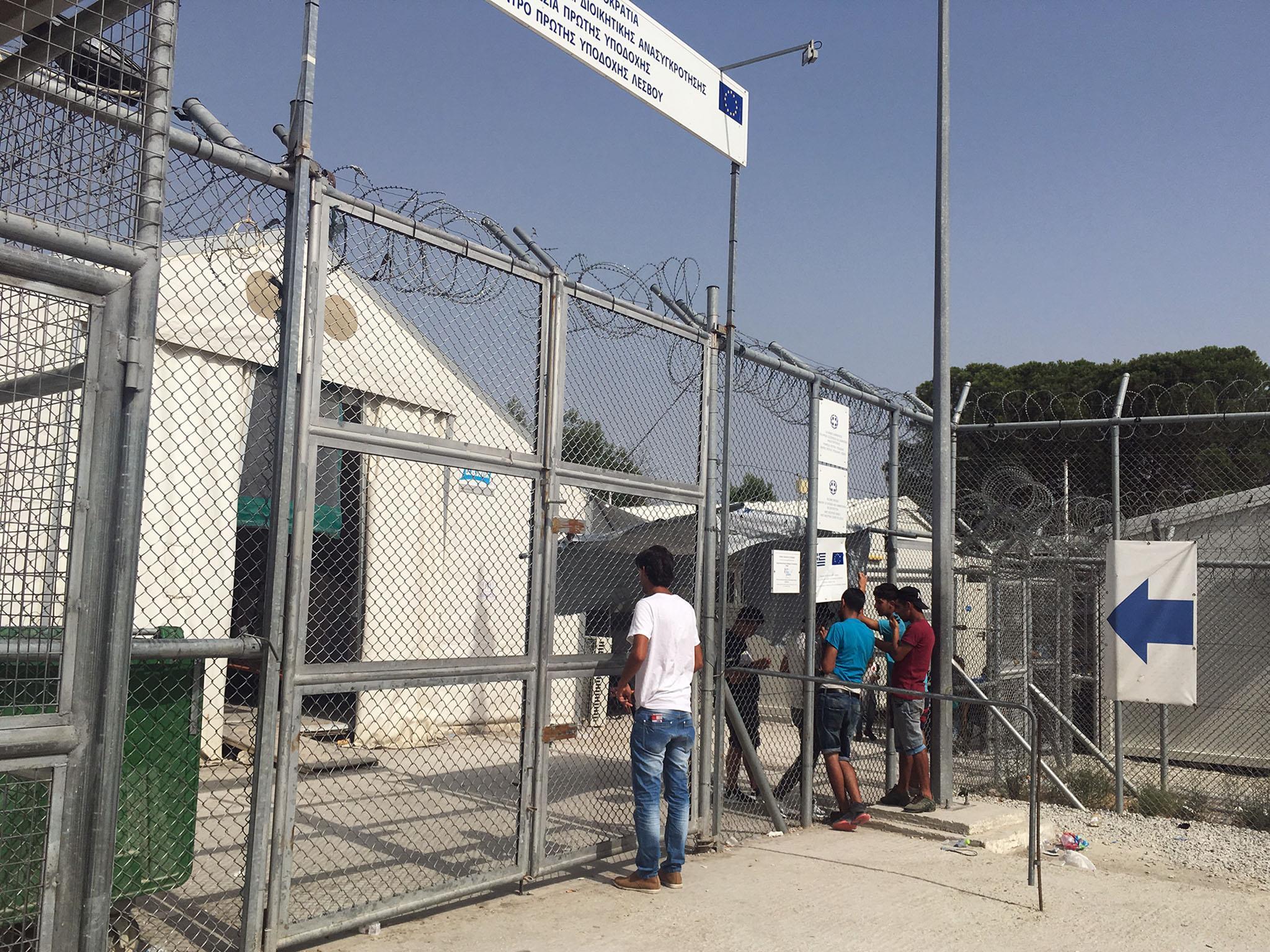
Your support helps us to tell the story
From reproductive rights to climate change to Big Tech, The Independent is on the ground when the story is developing. Whether it's investigating the financials of Elon Musk's pro-Trump PAC or producing our latest documentary, 'The A Word', which shines a light on the American women fighting for reproductive rights, we know how important it is to parse out the facts from the messaging.
At such a critical moment in US history, we need reporters on the ground. Your donation allows us to keep sending journalists to speak to both sides of the story.
The Independent is trusted by Americans across the entire political spectrum. And unlike many other quality news outlets, we choose not to lock Americans out of our reporting and analysis with paywalls. We believe quality journalism should be available to everyone, paid for by those who can afford it.
Your support makes all the difference.Refugees on Greece’s Lesvos island say they have turned to self-harming, in the hope that their actions will lead to a faster release from the poor conditions inside the detention centre.
Known as the “pre-removal centre”, the compound is in a gated section of the Moria refugee camp and holds refugees who are expected to be deported.
Eighteen-year-old Mirwaf Mansour*, who came to Greece as a refugee from Egypt, says he began cutting himself in a bid to get moved out of the detention centre, where he was held for 30 days after arriving at Moria camp in November 2016.
He pulls up his shirt, revealing a deep scar on his back, before pointing out another gash on his wrist.
Mr Mansour says poor living conditions and freezing temperatures made the detention centre unbearable.
After waking up one morning to find one of the men he was sharing a room with dead, Mr Mansour says he became too afraid to even fall asleep during his detention.
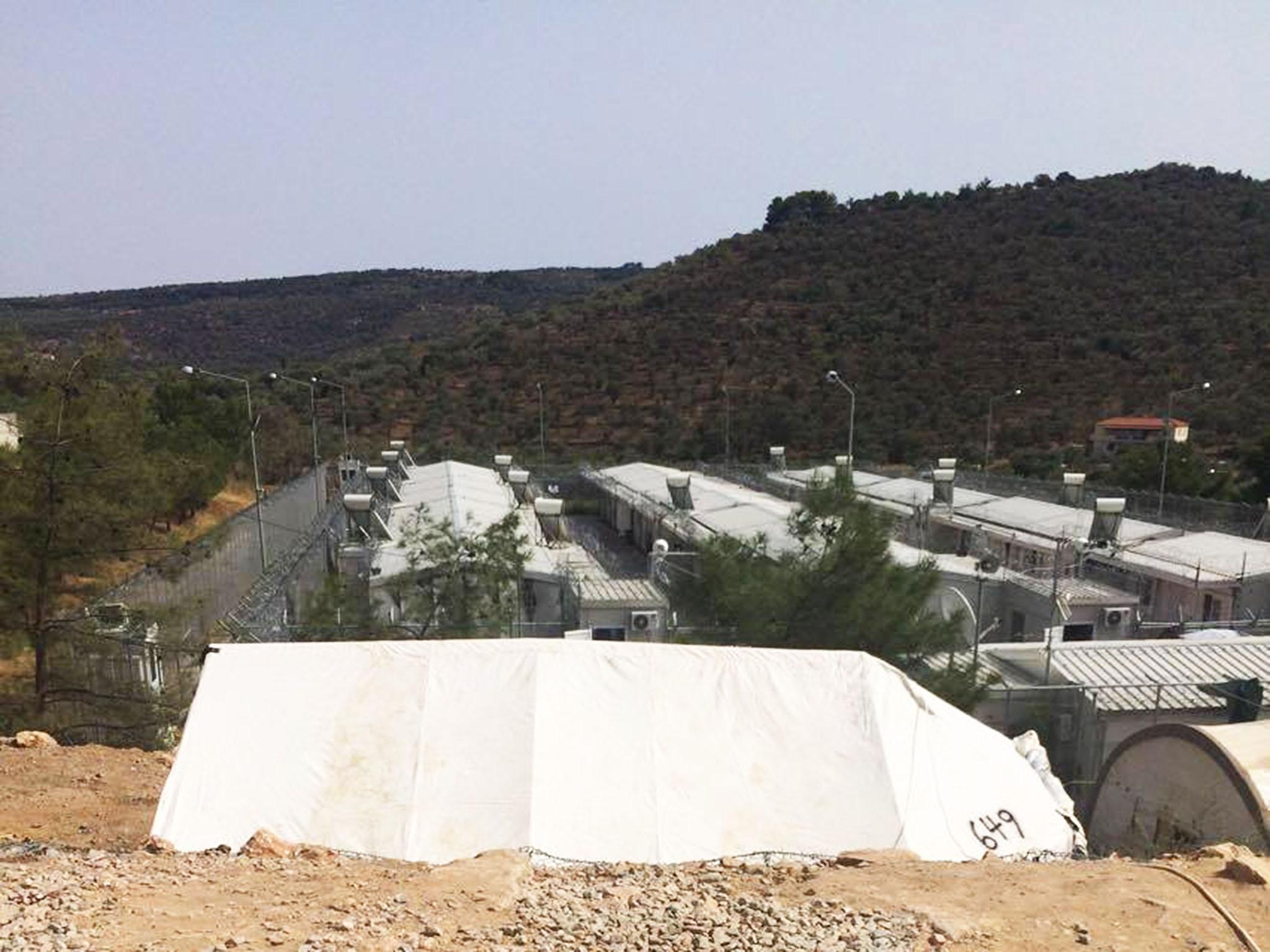
“I was living there with six people from Egypt and one from Syria,” he says. “The one from Syria died.
“I woke up at seven one morning and went to wake everyone else up... but he didn’t wake up. I think maybe it was because of the cold. It was freezing. After that, I didn’t sleep for three days,” Mr Mansour continues. “I was so scared that if I fell asleep, I wouldn’t wake up.”
A spokesperson for the United Nations High Commission for Refugees in Greece, Boris Cheshirkov, told The Independent the UNHCR has heard from refugees who have turned to self-harm in detention.
“Some people who are in the pre-removal have told UNHCR they have resorted to self-harm in the hope of being released,” Mr Cheshirkov said.
“But the strain on their mental health should not be discounted,” he added.
Mr Cheshirkov explained that in the pre-removal centre, “UNHCR has observed poor hygiene conditions and overcrowding”.
“When this is coupled with the frustration of people, it contributes to mental and psychosocial problems.”
The “pre-removal detention centre” is a closed section of the Moria refugee camp operated by the Greek Ministry of Migration Policy.
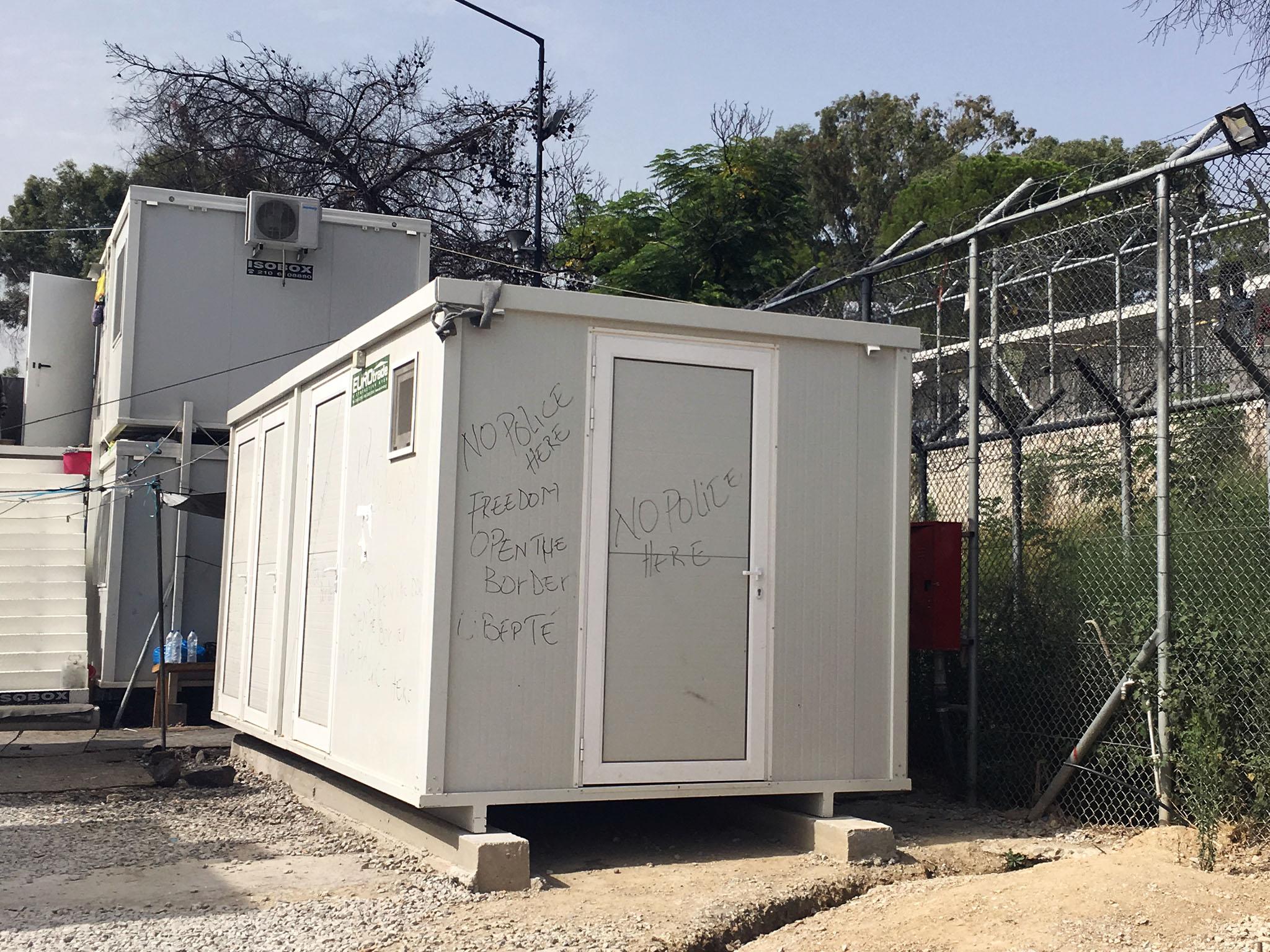
Under Greek law, it is designated as a “special detention premises for the detention of third country nationals that have been issued with deportation or return decisions”. Refugees who end up there are detained until the completion of the deportation or return procedures.
Sahar Mallah, Oxfam’s Protection Manager on Lesvos, explained that as part of a program called Pilot Project, refugees from certain countries are detained upon arrival – often these refugees are from Algeria, Morocco, Tunisia, Egypt, Bangladesh, Pakistan and several African countries. They often don’t have access to a lawyer and live in worse conditions than other asylum seekers.
Mr Cheshirkov said the Hellenic Police may detain asylum-seekers of countries with a “low recognition rate”, like the countries Ms Mallah mentioned. While several dozen nationalities are accommodated in Moria, the highest number of people are Syrian, Iraqi or Afghan – who have high recognition rates, he explained.
Asylum-seekers from countries with a low recognition rate are surprised to find themselves in detention in a country where they were hoping to find freedom.
Saami El Mahdy*, 26, arrived at Moria in 2016 after being rejected entry by Turkey, but because of his Egyptian nationality, he spent over a year in detention where he says he was physically and verbally abused.
Mr El Mahdy explains through a translator that he repeatedly asked officers and aid workers to explain why he was being held in the detention camp for so long, but he was never given an answer.
It was in the detention centre that he started cutting his wrists. Asked what life was like in the detention centre, he turns over his arms, revealing a string of scars on both sides.
“I thought about dying,” he said. “They deal with humans like they’re animals.”
Mr El Mahdy said in detention police officers “hit him and said bad words”. He says officers would beat him for no reason and call him words like “Motherf***er”.
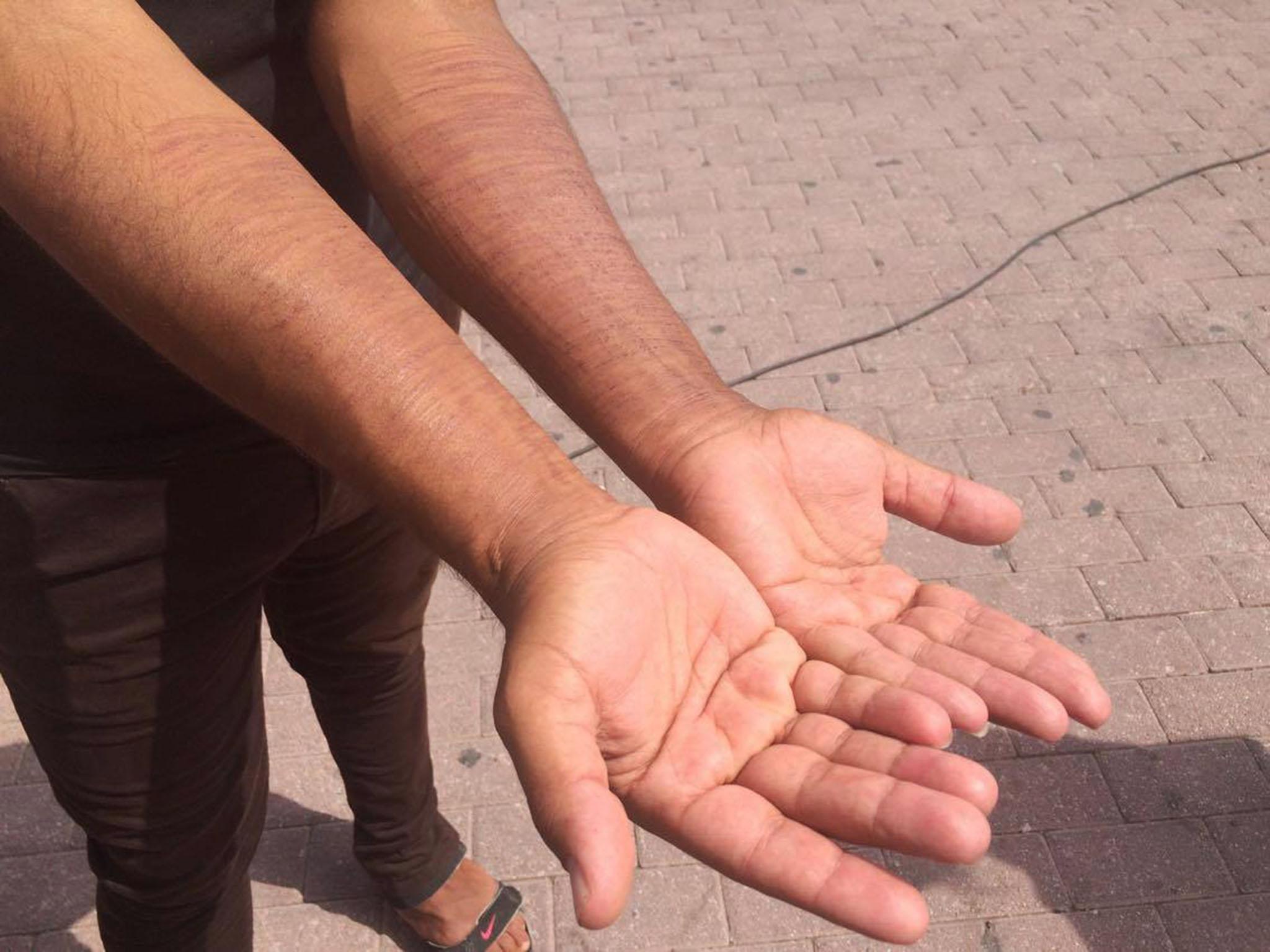
Oxfam says there have been rising rates of suicidal behaviour across refugee camps in Greece, with evidence of people burning themselves with cigarettes and abusing drugs like Vicodin, Trazadone and alcohol.
Ms Mallah said in the summer months, when Moria becomes even more crowded, living conditions worsen. A container appropriate for five people living in it could house as many as twenty. The more people, the worse the conditions get.
“A lot of people say they want to ‘end their lives’...‘I end up crying when I smile’ or ‘Death would be better than this,’” Ms Mallah said.
Rafat Zaghloul*, a friend of Mr El Mahdy, was also held at the detention centre when he arrived at Moria. He says he understands those sentiments.
“Why do they put us in prison? What’s the reason? They’re crazy,” he says, shaking his head.
“I should have rights like anyone else.”
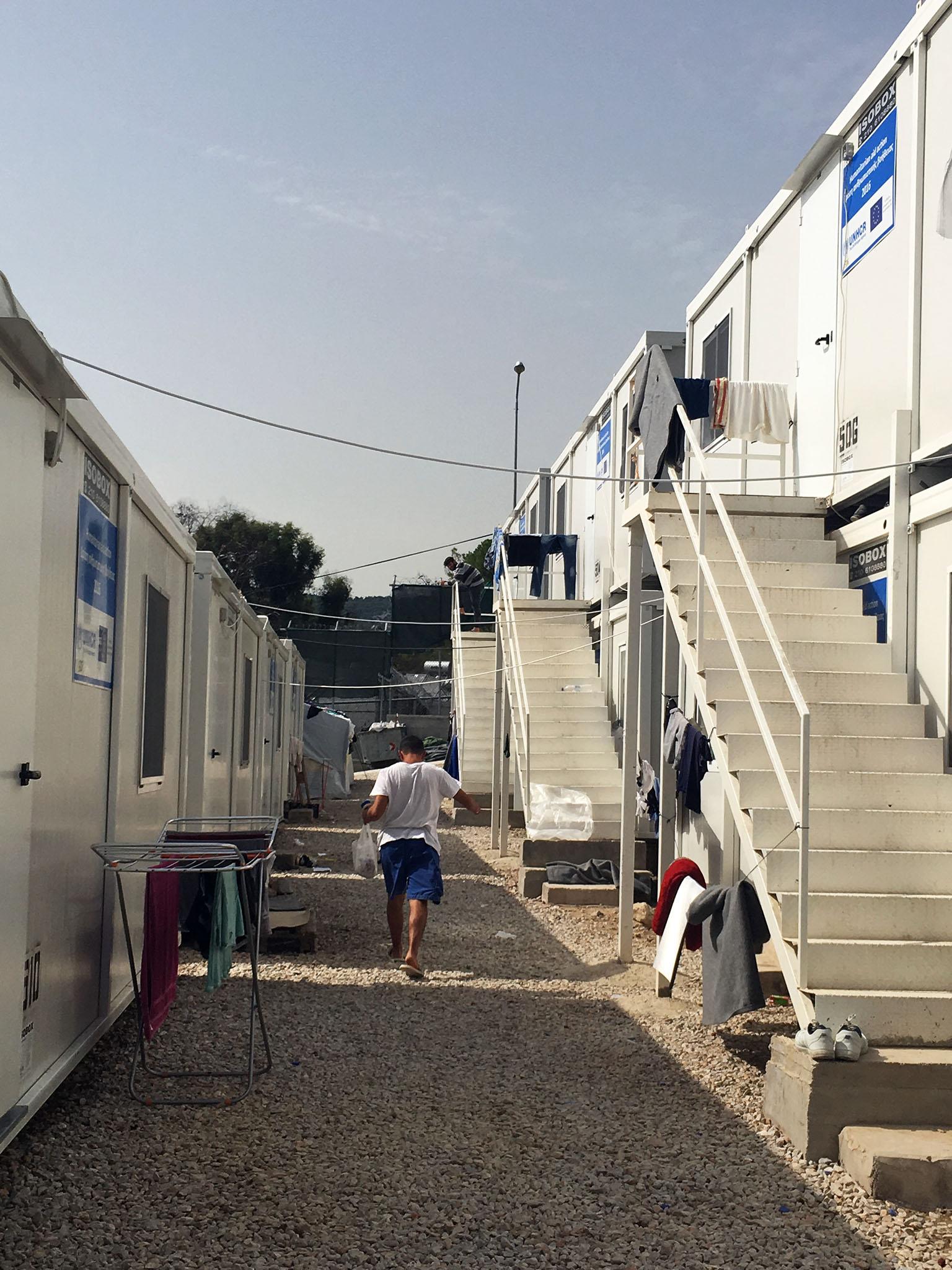
Mr Zaghoul says he was forced to flee Egypt after receiving death threats from Muslim Brotherhood when he refused to join the militant group.
“A lot of bad things happened. They said they would kill me, kill my father and my brother.
“Here, they tell me it’s safe to go back to Egypt. Yes, Egypt is safe, but the Muslim Brotherhood is not.”
Mr Zaghoul says that while he does not feel it’s safe to return to Egypt, he is desperate to leave Lesvos after being forced to stay in the detention centre.
“I wouldn’t stay here,” he says. “I can’t after the bad memories.”
*Some names have been changed to protect the anonymity of sources
Join our commenting forum
Join thought-provoking conversations, follow other Independent readers and see their replies
Comments